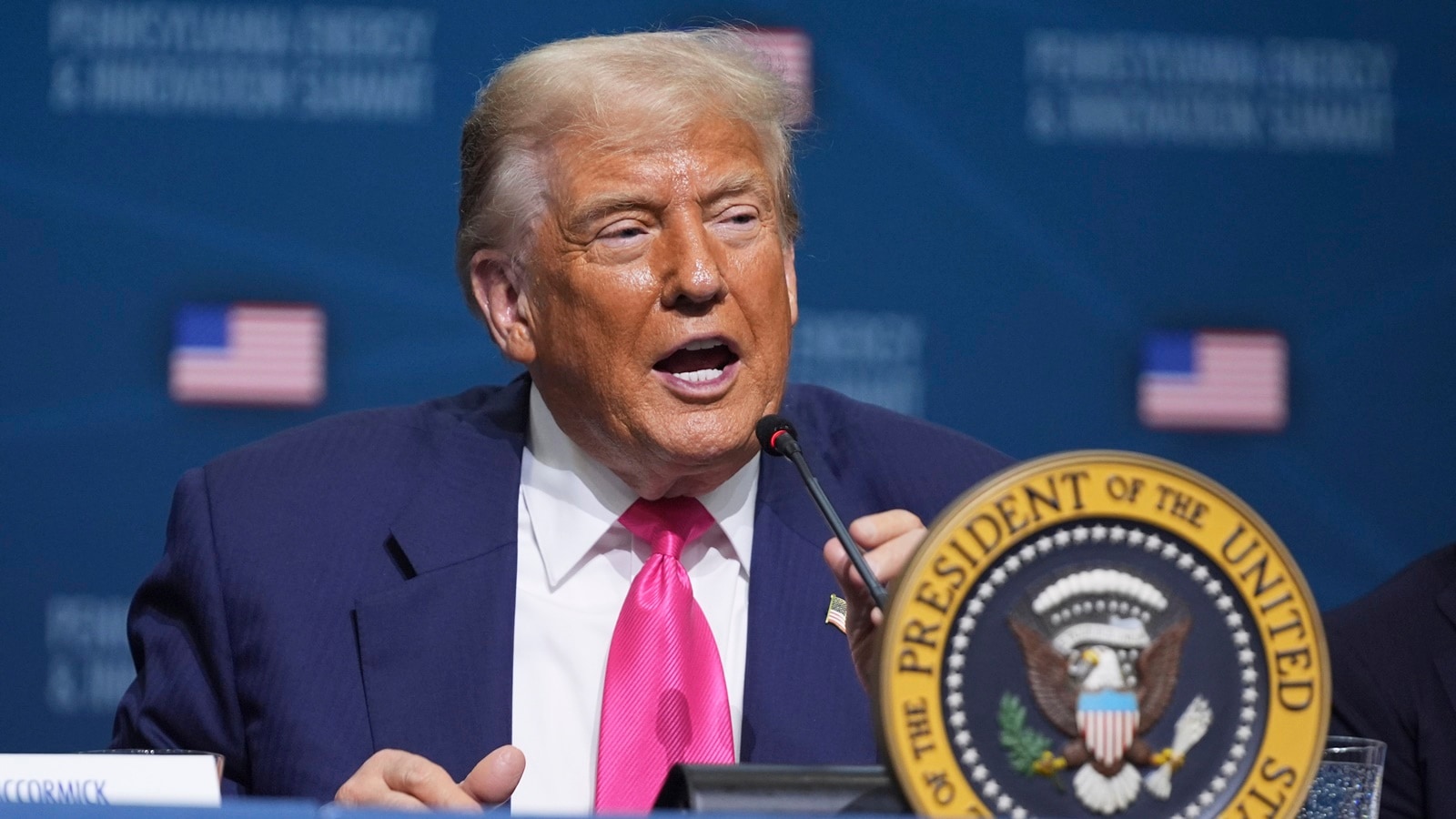As Indian negotiators engage with the US in extended talks for an interim deal this week, US President Donald Trump on Tuesday said that the US has signed a trade deal with Indonesia, opening the country to trade with America and that a agreement “on the same lines” is being worked on with India.
After what Indonesian President’s spokesperson Hasan Nasbi termed an “extraordinary struggle” by their negotiators, the US and Indonesia announced that the reciprocal tariffs faced by the Southeast Asian country would be reduced from 32 per cent to 19 per cent. Trump said American firms, in exchange, would have full access to the Indonesian market.
“We have full access into Indonesia, everything. As you know, Indonesia is very strong on copper, but we have full access to everything. We will pay no tariffs..India is basically working along that same lines. We’re going to have access into India. You have to understand, we had no access to any of these countries. Our people couldn’t go in, and now we’re getting access because of what we’re doing with the tariffs,” Trump told reporters.
In what could be a glimpse of a similar agreement with India, Indonesia has not only agreed to remove duty on agricultural items but also on certain manufactured goods. Trump said Indonesia has also agreed to purchase $15 billion worth of US energy, $4.5 billion in American agricultural products, and 50 Boeing jets.
The new rates for Indonesia were announced after Trump imposed 32 per cent tariffs on the country in a letter sent last week, despite ongoing negotiations. Talks with India have also been underway, though Trump has not announced any new tariffs in India’s case. A deal on the same lines as could, according to exports, translate into India potentially stepping up purchase of petroleum and agriculture items from US, alongside other items.
New Delhi-based think tank GTRI said that India must proceed with extreme caution in negotiating any trade deal with the United States, given the Trump administration’s current approach.
“Trump’s unilateral declarations—such as claiming a ‘done deal’ with Indonesia and saying India is ‘working along the same line’—often pre-empt actual negotiations. This was evident in the Vietnam case, where Trump announced a 20 per cent tariff on Vietnamese goods as part of a supposed deal, while Vietnamese officials clarified they had only agreed to 11 per cent,” GTRI said.
Story continues below this ad
The think tank added that to avoid similar misrepresentation, India must insist on a jointly issued, written statement before acknowledging any agreement. Verbal assurances or informal understandings—especially those announced on social media—are no substitute for formal, verified commitments, GTRI said.
“Moreover, Trump’s claim that the US will get full access to the Indonesian market at zero tariffs, while Indonesian exports will face a 19 per cent duty in the US, raises red flags. If India were to accept such a lopsided arrangement, it could expose its domestic sectors—especially dairy and agriculture—to duty-free US goods while gaining little in return,” the GTRI note read.
A bad deal—especially one that removes India’s tariffs without reciprocal benefits—could be worse than no deal at all. India must therefore negotiate transparently, guard against one-sided outcomes, and not succumb to pressure for quick, symbolic agreements that compromise long-term economic interests, the think tank said.
The Indian Express had reported that agriculture has been a major sticking point in the negotiations, particularly because India has adopted an unwavering stance on this sector. The US maintains that the August 1 cut-off date is not a new deadline but an outer limit for countries to “speed things up”, and that this strategy has helped bring trading partners such as the European Union on board.
Story continues below this ad
The threat from the Trump administration is that if the August 1 deadline is not adhered to, those countries revert to the April 2 tariff levels. Most of them are minor trading partners of the US and are likely outside America’s 18 key trading relationships that account for 95 per cent of the country’s trade deficit.

